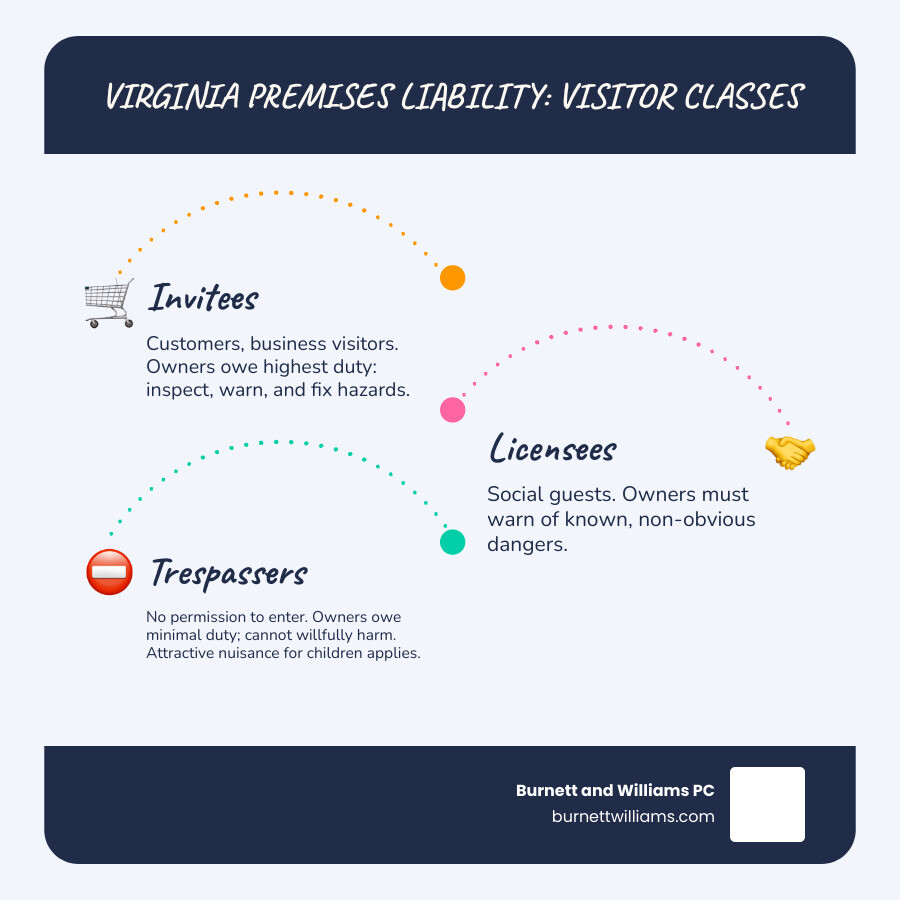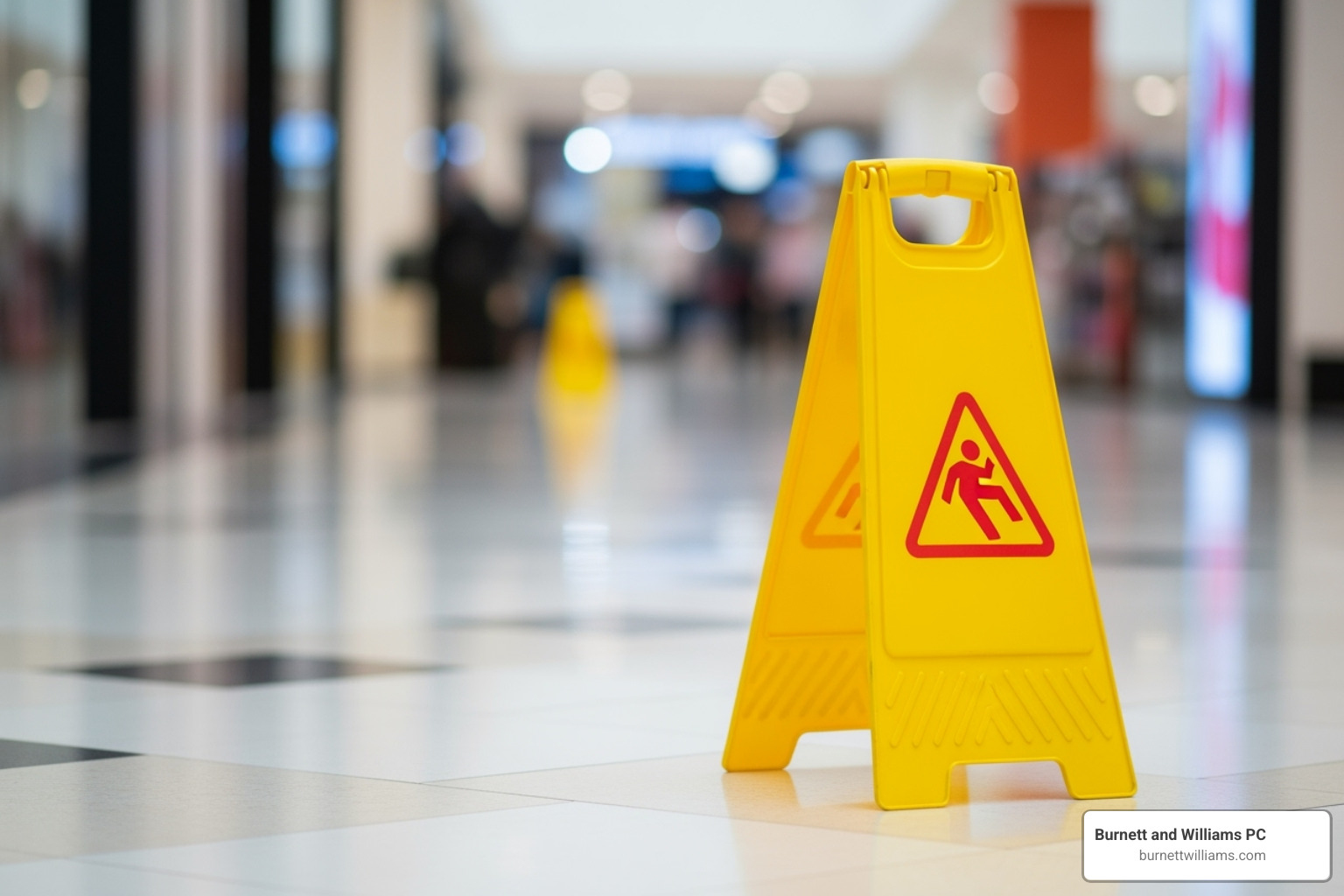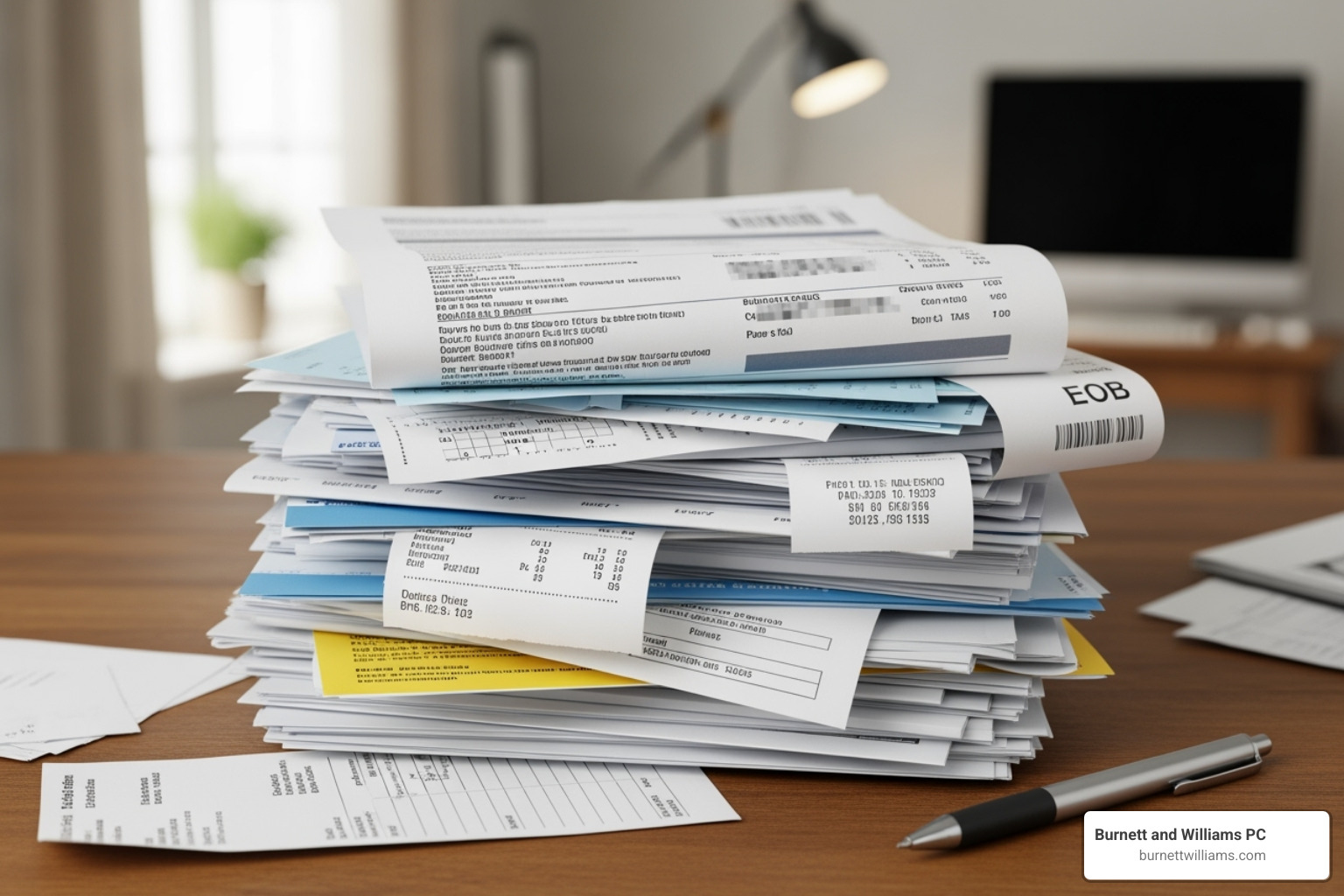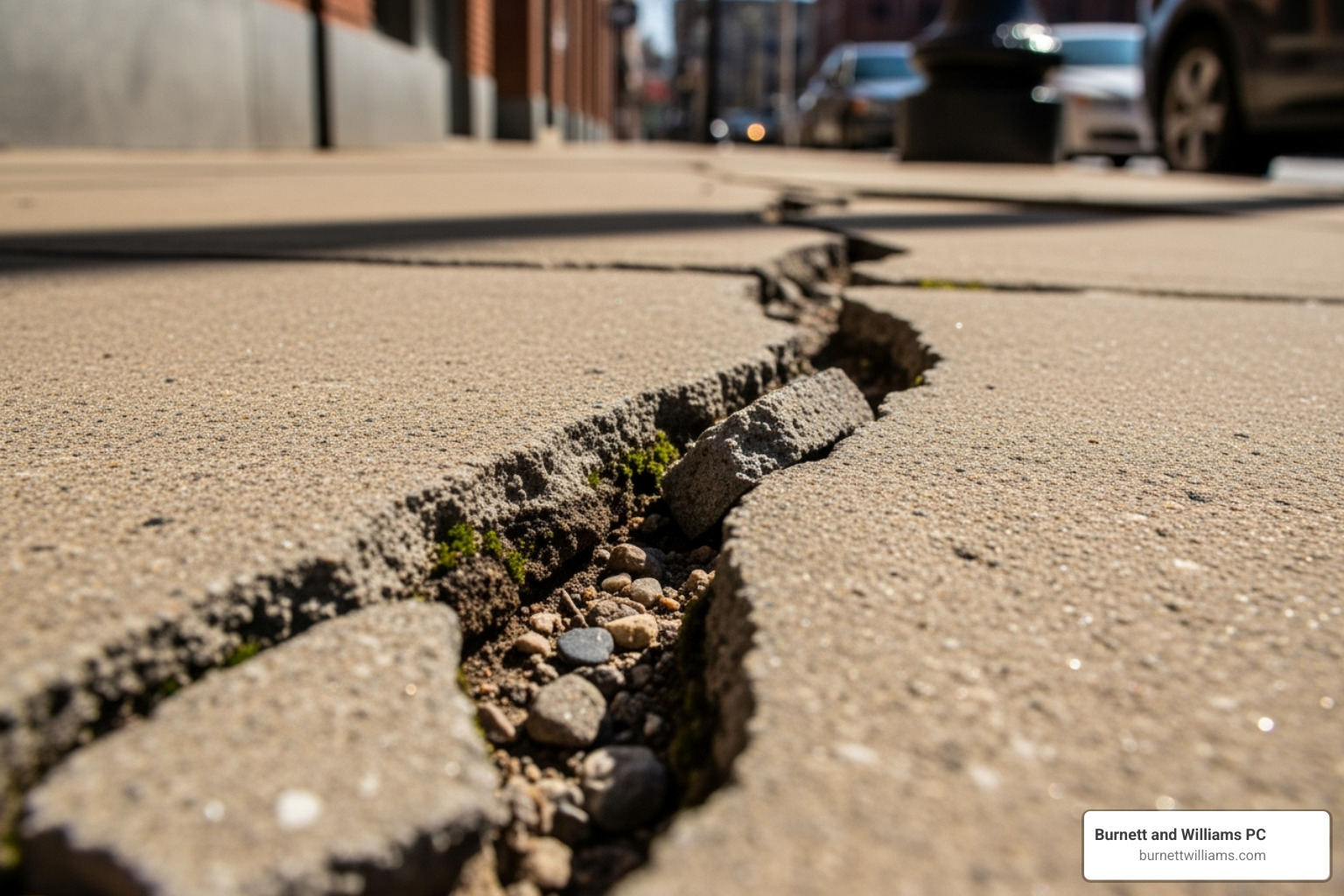When Property Owners Fail to Keep You Safe
Virginia premises liability law holds property owners legally responsible when unsafe conditions cause injuries. If you were hurt in a slip and fall, attacked due to poor security, or injured by a hazard on someone else’s property, you may have a legal claim to recover costs like medical bills and lost wages.
However, these cases are challenging. An owner isn’t automatically liable. You must prove they knew or should have known about the danger and failed to act. Your legal rights also depend on your status as a visitor: an invitee (customer), licensee (social guest), or trespasser.
Making matters tougher is Virginia’s strict contributory negligence rule. If you are found even 1% at fault, you cannot recover any damages. You also have a limited time to act, as a two-year deadline applies to file a lawsuit. When property owners neglect their duty of care, they must be held accountable.
Understanding Virginia Premises Liability Law
When you enter a property in Virginia, you expect it to be reasonably safe. Virginia premises liability law holds owners and controllers of property accountable when they fail to meet this basic expectation. The legal duty they owe you, however, depends on why you are on the property. Understanding this distinction is key to any injury claim.
The Three Classes of Visitors in Virginia
Virginia law classifies visitors into three groups, each with different legal protections.
- Invitees: These visitors, typically customers in a store or guests at a hotel, are on the property for the owner’s benefit. They receive the highest duty of care. Owners must inspect for dangers, fix them, and warn of any non-obvious hazards. For more on these accidents, see our page on slip and fall injuries.
- Licensees: Social guests invited to a home for a barbecue in Loudoun County are a common example. The owner must warn licensees of known dangers but does not have a duty to inspect the property for unknown hazards.
- Trespassers: Someone on property without permission is a trespasser. Owners owe them the lowest duty, which is to avoid intentionally or recklessly causing them harm. An important exception is the “attractive nuisance” doctrine, which requires owners to protect children from dangers like unfenced swimming pools.
Determining your status is a critical first step. For more on this, see our resource on who is at fault in premises injury cases.
Who Can Be Held Responsible?
Liability isn’t always limited to the property owner. Multiple parties could be responsible for your injuries, including:
- Property Owners: They have the primary duty to keep their property safe.
- Landlords: They are often responsible for common areas in rental properties, like stairwells and parking lots in an apartment complex.
- Tenants: A business that leases a space, like a restaurant in Ashburn, is usually liable for injuries that happen inside its premises.
- Management Companies: Companies hired to handle daily operations can be held liable for failing to address hazards.
- Third-Party Contractors: A contractor who creates a hazard, like an improperly repaired sidewalk, may also be at fault.
An experienced attorney will investigate all potential parties to ensure you can pursue the full compensation you deserve.
Proving Negligence and Overcoming Defenses
Simply getting hurt on someone’s property isn’t enough to win a Virginia premises liability case. You must prove the owner was negligent and that their negligence caused your injuries. This involves establishing four key elements: a duty of care was owed, the owner breached that duty, this breach caused your injury, and you suffered damages as a result.
A critical part of proving a breach is showing the owner had “notice” of the hazard. This means proving they had actual notice (they knew about the danger) or constructive notice (the danger existed long enough that they should have known about it). For example, a spill that was on a floor for hours could establish constructive notice.
The Challenge of Virginia’s Contributory Negligence Rule
The biggest hurdle in Virginia is its harsh contributory negligence rule. If a property owner can show you were even 1% at fault for your accident, you are barred from recovering any compensation.
This means if you slip on an icy, unsalted parking lot in Lynchburg, but the owner argues you were looking at your phone, a jury finding you even slightly careless could cause you to lose your entire case. This rule makes it essential to build a strong case showing you were not at fault. For more insight, visit our page on who is at fault.
What You Must Prove in a Virginia Premises Liability Case
To build a successful claim, we must prove a clear chain of events:
- An unsafe condition existed: This could be a wet floor, a broken step, or poor lighting in a Norfolk parking garage.
- The owner knew or should have known: We use evidence like maintenance logs or witness statements to show the owner had notice.
- The owner failed to fix or warn: The owner must repair the hazard or provide an adequate warning.
- The hazard directly caused your injuries: We must clearly link the unsafe condition to your fall and subsequent injuries.
- You suffered demonstrable harm: This includes medical bills, lost wages, and pain and suffering, all supported by evidence.
Strong evidence like photos, witness accounts, and incident reports is vital. For more guidance, check out our resource on slip and fall accidents.
Common Accidents and Recoverable Damages
Virginia premises liability claims can arise from many types of accidents caused by a property owner’s negligence. Dangerous conditions can exist anywhere, from busy Chesterfield shopping centers to residential properties in Culpeper.
Common examples include:
- Slip and fall accidents: These are often caused by wet floors, icy sidewalks, or torn carpets. Learn more about Slip and Fall Accidents in Loudoun County.
- Negligent security: Inadequate lighting in a parking garage or broken locks at an apartment complex can lead to assaults and other crimes.
- Poor maintenance: This includes hazards like broken stairs, faulty elevators, or collapsing decks. Violations of the Virginia Uniform Statewide Building Code can be strong evidence of negligence.
- Swimming pool accidents: Owners may be liable for failing to install proper fencing or provide safety equipment. Learn about A Pool Owners Legal Liability.
- Dog bites: Owners of animals with known aggressive tendencies can be held responsible for attacks under Virginia’s laws regarding dangerous dogs.
Types of Compensation (Damages) in Virginia
If you are injured due to a property owner’s negligence, you can seek compensation, also known as damages, for your losses.
Economic damages cover your financial losses. This includes all medical bills (past and future), lost wages, and loss of future earning capacity if you cannot return to your previous work.
Non-economic damages compensate for the non-financial impact of your injuries. This includes pain and suffering, emotional distress, and loss of enjoyment of life. A study confirms that accident victims often suffer long-term emotional effects like anxiety and depression. In some cases, a spouse may also have a claim for loss of consortium.
Critical Steps to Take After an Injury
The moments right after you’re injured on someone else’s property can feel overwhelming, but what you do next can significantly impact your Virginia premises liability claim.
- Seek Medical Care Immediately: Your health is the priority. Adrenaline can mask serious injuries. A doctor’s visit creates an official record linking your injuries to the accident.
- Report the Incident: Inform the property owner or manager on-site. Ask for a copy of the incident report. This is especially vital if the property belongs to a city or county, as strict notice deadlines apply.
- Document Everything: Use your smartphone to take photos and videos of the hazard, the surrounding area, and your injuries. This evidence can be crucial, as owners often fix hazards quickly.
- Gather Witness Information: If anyone saw what happened, get their names and contact information. Independent accounts can be very powerful.
- Be Cautious with Insurance Companies: Do not give a recorded statement to the owner’s insurance adjuster without speaking to an attorney. They are trained to find ways to assign fault to you, which could ruin your claim under Virginia’s 1% fault rule.
- Preserve Evidence: Keep the shoes and clothing you were wearing. Save all medical bills, receipts, and records of missed work. An experienced lawyer can help you gather other key evidence, like maintenance records. Learn more from our Northern Virginia Slip and Fall Injury Lawyers.
Be Aware of Virginia’s Statute of Limitations
In Virginia, you have a strict two-year deadline from the date of your injury to file a lawsuit. If you miss this deadline, your claim will be permanently barred, no matter how strong your case is.
While there are rare exceptions, such as for minors, you should not count on them. Waiting also hurts your case, as evidence disappears and memories fade. Insurance companies know about this deadline and may delay negotiations, hoping you run out of time. It is critical to contact an attorney early to preserve your rights.
Conclusion: Protecting Your Rights After an Accident
An injury on someone else’s property brings you into a complex legal world. Virginia premises liability law is complicated by the state’s harsh contributory negligence rule, which can prevent you from recovering any compensation if you are found even 1% at fault.
Property owners have a duty to keep their premises in places like Richmond, Leesburg, and Hopewell reasonably safe. When they fail, and you get hurt, they should be held accountable. However, protecting your rights requires gathering evidence quickly, avoiding mistakes with insurance adjusters, and acting before the two-year deadline expires.
At Burnett & Williams PC, we guide clients through this difficult process with responsive, caring service. If you were injured on unsafe property, learn more about your Premises Injury Virginia claim and contact us for a free consultation to understand your options.



